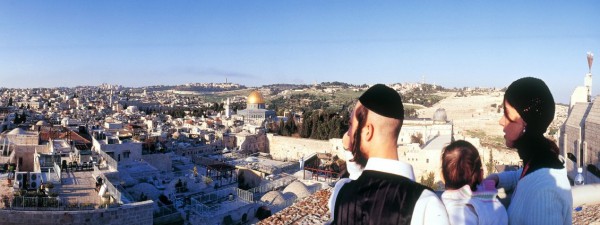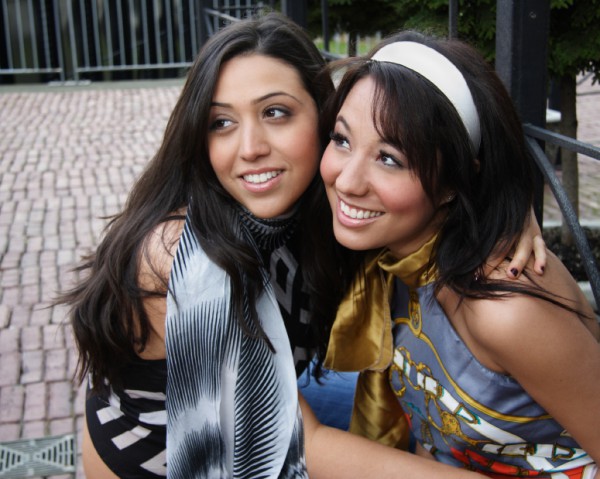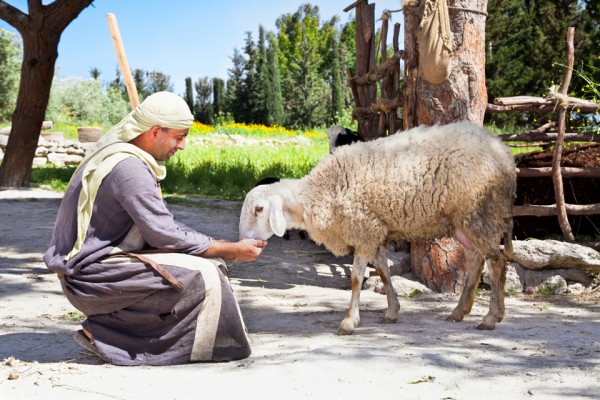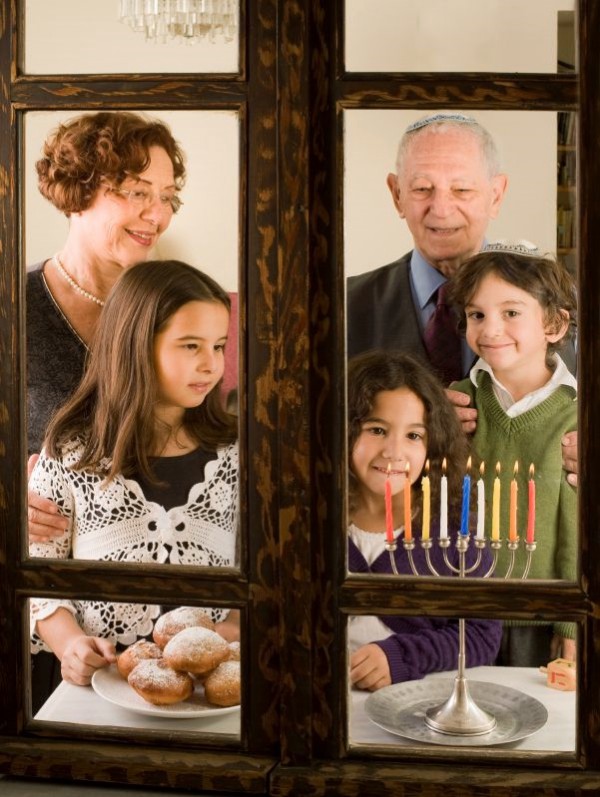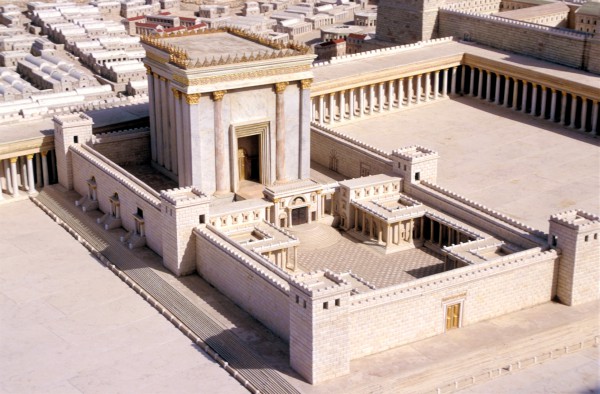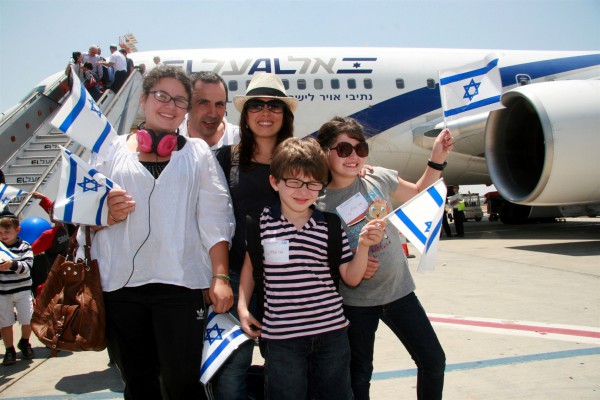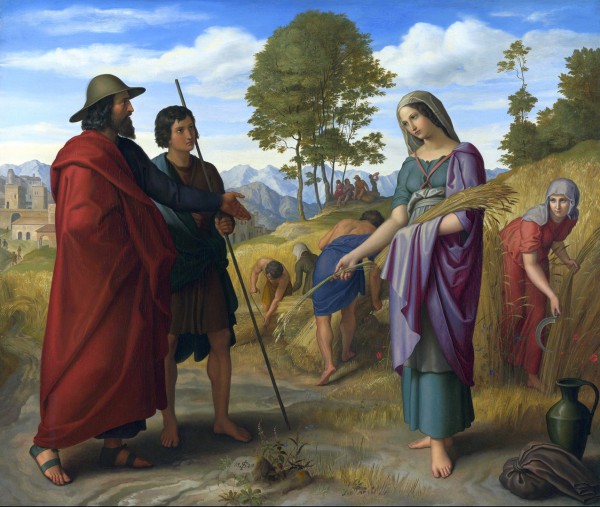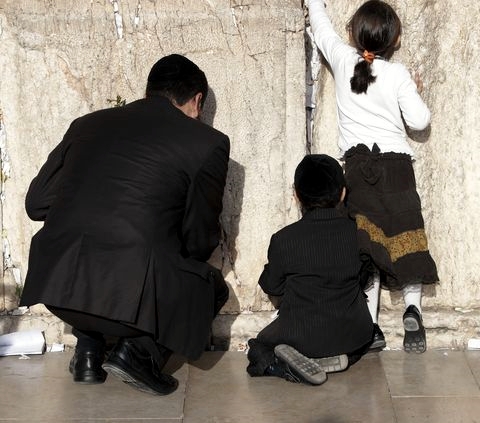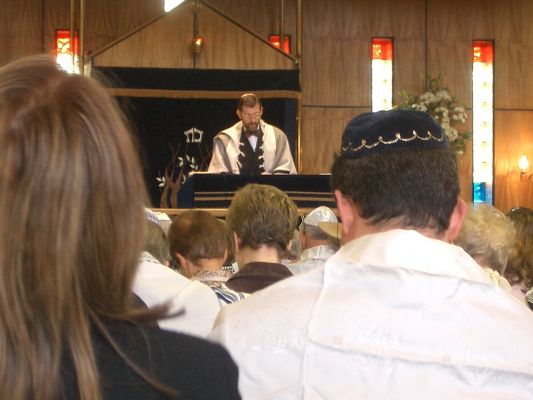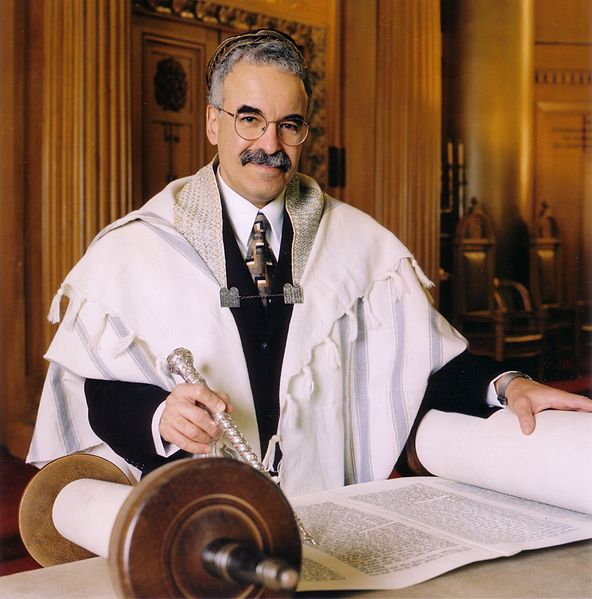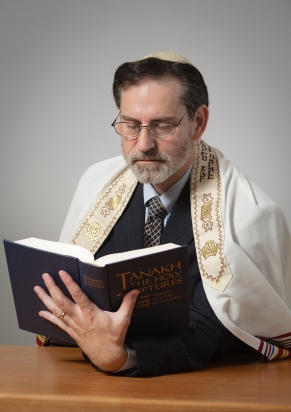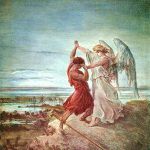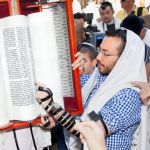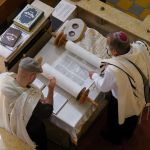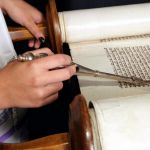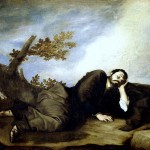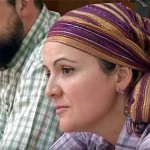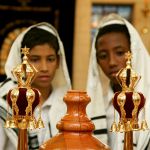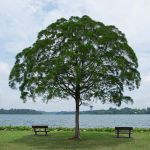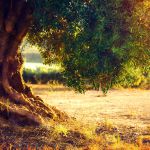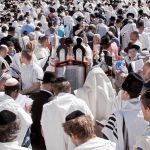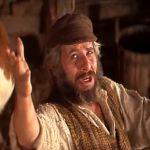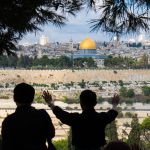“You are a people holy to the LORD your God. Out of all the peoples on the face of the earth, the LORD has chosen you to be His treasured possession.” (Deuteronomy 14:2)
According to the latest Pew Research Center survey,about a quarter of U.S. Jewish adults do not identify with the Jewish religion.
The reports goes on to explain that “Jews of no religion stand out for low levels of religious participation – particularly synagogue membership and attendance – together with comparatively weak attachments to Israel, feelings of belonging to the Jewish people and engagement in communal Jewish life.”
Just over thirty percent of those interviewed did not identify with any particular stream or institutional branch of Judaism.
Here in Israel, close to half are secular Jews.
This includes atheists and those who buck religious classification and prejudices in a national society that has become increasingly divided along religious-secular lines.
Some of these “secular” Jews pray, light Shabbat candles, and even keep kosher.
Messianic Judaism
The most recent study on this subject revealed that about a third of American Jews find belief in Yeshua (Jesus) as the Messiah compatible with Judaism.
Although several movements within Judaism are messianic—believing in the coming Messiah—Messianic Judaism refers to Jews who maintain their belief that Yeshua (Jesus) is the Jewish Messiah within a Jewish context.
Originally, of course, most of the Believers in the first century were observant Jews—something akin to Orthodox—as was Yeshua, who was sent to minister to the lost sheep of the House of Israel. (Acts 6:7; Matthew 15:24)
Sadly, over the centuries, belief in Yeshua disappeared from its original Jewish context, partly due to the destruction of the Second Temple and partly due to social pressure.
As belief in Yeshua was divorced from its Jewish origins, Gentile Believers increasingly adopted anti-Semitic biases.
This, unfortunately, lasted for centuries, even though they are joined through Messiah to the God of Abraham, Isaac, and Jacob, the same God as the Jewish People.
“For He Himself is our peace, who has made both one, and has broken down the middle wall of separation.” (Ephesians 2:14)
Although there have been Jews over the centuries who have believed in Yeshua, the Messianic movement emerged in the 1960s at the same time as the Jesus Movement on the West Coast of the United States.
Some estimate that there may be about 350,000 Messianic Jews worldwide.
Messianic Jews do not stop being Jewish because they follow Yeshua. They do not lose their Jewish identity, lifestyle or culture; they affirm it. They do not believe, however, that the rabbinic oral law (Mishna and Talmud) is divinely inspired.
While most Messianic Jews celebrate the Jewish festivals and observe Jewish fast days, most do not celebrate manmade holidays such as Christmas or Easter.
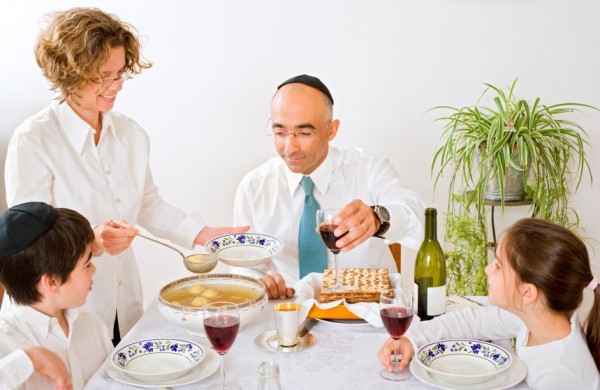
During the Pesach (Passover) Seder (ritual meal), the story of the liberation of the Israelites from slavery in ancient Egypt (Exodus 1–15) is recounted. In Messianic Seders, this story of physical salvation is told, as well as its fulfillment in the salvation from sin found in Yeshua HaMashiach (Jesus the Messiah).
Even though Messianic Jews preserve a Jewish lifestyle, they maintain a relationship with Christians and have participated in times of prayer and reconciliation with Gentile Believers—including in Israel itself, where Christian Arabs and Messianic Jews come together for events like the annual Global Day of Prayer.
“The centrality of Messiah Yeshua puts us in profound spiritual unity with people in another worldwide community—the Christian Church,” states the website of Washington DC’s Congregation Shuvah Yisrael.
“Though we practice our faith differently, we have deep appreciation for the Church. Our primary sense of identity lies with the Jewish People. But, we share a deep bond with all who see Jesus as the ultimate answer to the great questions of life,” it continues.
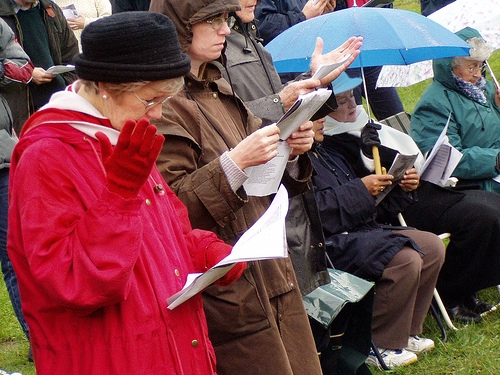
All around the world, Believers of all nationalities come together to pray on the Global Day of Prayer.
In these last days, as the stage is set for the return of Yeshua to the Mount of Olives (Zechariah 14:4; Matthew 24:30), many Gentile Believers recognize the significant role of Israel and the Jewish People, understanding that they are fellow heirs and partakers of the covenant promises.
“You are no longer foreigners and strangers, but fellow citizens with God’s people and also members of His household.” (Ephesians 2:19)
Sadly, many Christians do not have a vision for being members of one household with God’s People.
They believe that God is done with the Jewish People, that He has transferred all of Israel’s blessings and promises to the Church and has forsaken His covenant with Israel (Jacob).
“I am the LORD, the God of your father Abraham and the God of Isaac. I will give you and your descendants the land on which you are lying. Your descendants will be like the dust of the earth, and you will spread out to the west and to the east, to the north and to the south. All peoples on earth will be blessed through you and your offspring.” (Genesis 28:13–14)
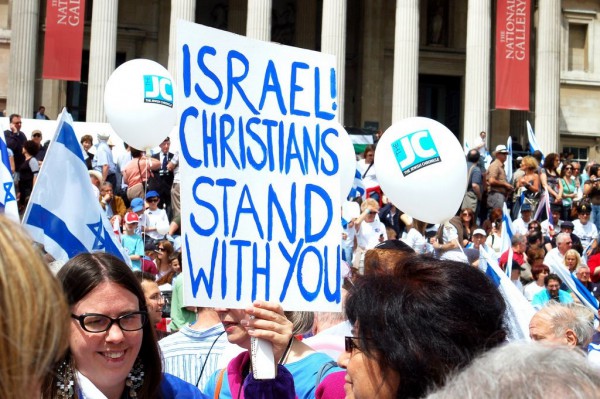
British Christians in London show their support of Israel during the parade and festival to celebrate the anniversary of the re-establishment of the State of Israel.
Although some Gentile Believers argue that they are now the “spiritual Israel” and that the Jews are no longer “God’s Chosen People,” the unchangeable reality is that God loves and cherishes His Chosen People.
God’s deep, abiding love is revealed in His terms of endearment for Israel: “My firstborn son” (Exodus 4:22–23); “treasured possession” (Deuteronomy 7:6); “My people, My chosen, the people I formed for Myself” (Isaiah 43:18–21); “My delight is in her” (Isaiah 62:4); and “the apple of His eye” (Zechariah 2:8).
King Solomon called them “the people you have chosen.” (1 Kings 3:8)
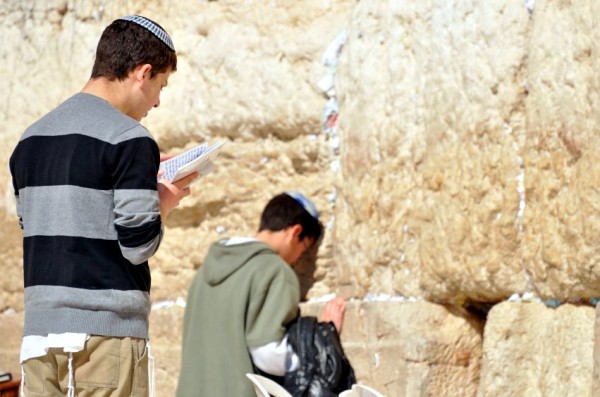
An observant Jewish youth prays at the Western (Wailing) Wall in Jerusalem. The fringed garment that is showing under his sweater is called a tallit katan (small prayer shawl). While wearing fringes (tzit tzit) on the corners of garments is mandated by Biblical law (Numbers 15:38-39), the prayer shawl itself is not mandated, but is strongly encouraged for men in Rabbinic law and often considered an obligatory custom.
The Chosen People: Jewish Heritage Remains Secure
While some claim Bible prophecy pertaining to Israel has been annulled, we can see it being actively fulfilled today in the Jewish People being a blessing to all the nations of the earth, which He said He would do:
“I will make you into a great nation and I will bless you; I will make your name great, and you will be a blessing. I will bless those who bless you, and whoever curses you I will curse; and all peoples on earth will be blessed through you.” (Genesis 12:1–3; see also Genesis 28:13–14)
Certainly, we have seen a partial fulfillment of this through all of the Jewish People’s many contributions to science, medicine, technology and the arts.
Not to mention the fact that the Jewish People have shone the light of truth to the world through the Bible or that mankind’s Savior, Yeshua HaMashiach (Jesus the Messiah) was a Jew.
Some leaders within Christianity, however, have argued that the Jewish race ceased to exist after the Second Temple was destroyed, since many of the Jewish people living in Israel at that time were enslaved or scattered.
They say that throughout the last two thousand years, Jewish people intermarried and lost their racial purity. Or they find it significant that most Jews today can no longer recite their genealogy.
Of course, many would like to use such arguments to sever the connection of the Jewish People from the Holy Land.
The truth is and has always been, however, that there is only one race of people, and that the entire concept of race has no scientific or genetic basis.
Human beings are descendants of Adam and Eve; they share at least 99.9% of the same genetic materials.
Nevertheless, it is often possible to trace ancestral origin in the remaining 0.1%.
This is true of the Jewish people who have traditionally married within their people group. In fact, DNA testing can determine if a Jewish male is a descendant of Aaron, Moses’ brother, through the father to son lineage. If so, this would make him part of the Cohanim, the priesthood appointed by God and possibly fit to serve in the Third Temple service.
And even though having a non-Jewish mother disqualifies a Cohen from priestly status and Temple Service today, it is not a conclusive argument against Jewish identity.
Long before the Second Temple was destroyed, King David had a grandmother, Ruth, who was not Jewish—it would be silly to dispute his bloodline.
Moses, Joseph and Solomon also had wives who were not Jewish.
And when the Israelites were delivered from Egypt, included in their numbers were Egyptians and other nationalities. At the foot of Mount Sinai, they entered into the same covenant with God as the physical descendants of Abraham, Isaac and Jacob, becoming part of the covenant people.
Who Are the Jewish People Today?
When it comes to defining who is Jewish, it is commonly believed that the forefathers decided that Jewish descent comes through the patrilineal bloodline; this pattern started with the father of the 12 tribes, Jacob (later named Israel).
The Second Temple period, however, reigned in the transfer of generational Jewishness from the father’s line to the mother’s line.
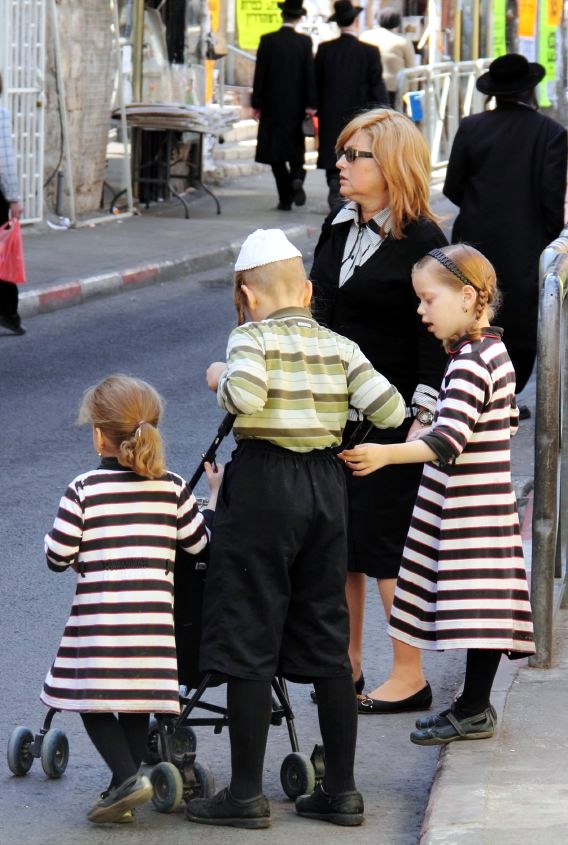
An Orthodox Jewish mother takes her children for a walk in Mea Shearim, which is mainly populated by Haredi Jews and is one of the oldest neighborhoods in Jerusalem.
By the second century AD, this pattern of descent was commonly accepted.
According to Judaism 101, the “Torah does not specifically state anywhere that matrilineal descent should be used; however, there are several passages in the Torah where it is understood that the child of a Jewish woman and a non-Jewish man is a Jew, and several other passages where it is understood that the child of a non-Jewish woman and a Jewish man is not a Jew.”
Although some people define being Jewish as a nationality and some define it as a religion, today a person is recognized as Jewish if their mother was Jewish or they formally converted to Judaism.
In other words, being Jewish is inherited and is not connected with belief (unless one converts, of course).
Indeed, here in the Holy Land, secular Israelis often have a strong Jewish identity that is aligned with Biblically-endorsed Zionism (rights to a Jewish homeland in Israel) or with immediate family ties and traditions, rather than religion.
Furthermore, religiously speaking, Judaism expresses itself in a variety of ways.
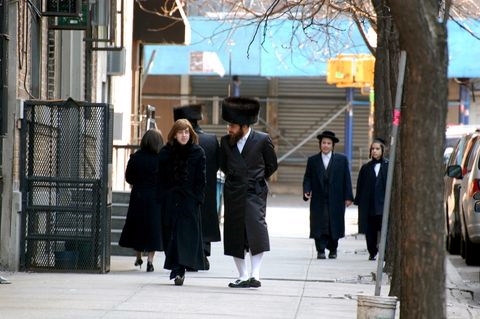
Chabad, also known as Chabad-Lubavitch, is a branch of Haredi Judaism. The official headquarters is in the Crown Heights section of Brooklyn, New York.
Orthodox Judaism
Orthodox Judaism is not a unified movement within Judaism. The term can be regarded as simply a generic label for Jews who are more strictly observant.
“Of all the movements on the contemporary Jewish scene, Orthodoxy is the least centralized and the most diverse,” Eliezer Segal states. (University of Calgary)
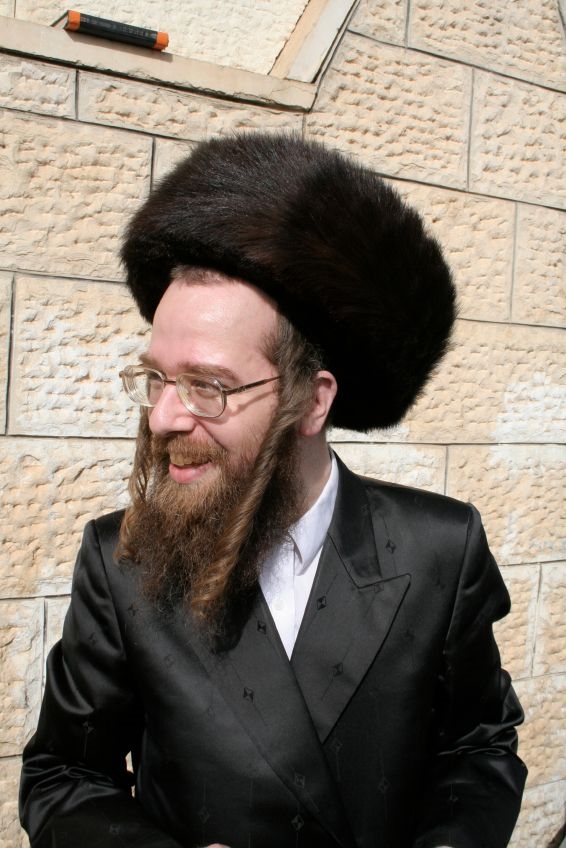
Some Chasidic Jewish males wear a special fur hat called a shtreimel on Shabbat (Saturday) and on Jewish holidays.
He adds that the Orthodox vary “on a broad range of secondary issues,” including leadership models, educational philosophies, policies toward Jewish nationalism and the legitimacy of mysticism.
Still, it is considered a major branch. It holds that the Bible is God-given, that it is important to study and keep Jewish law, and that both the written law and the rabbinic oral law are the divinely inspired Word of God.
Orthodox Judaism can be seen as comprising two main subgroups—Modern Orthodox Judaism, which interacts with modern culture and Haredi Judaism, which advocates segregation from non-Jewish culture.
Both groups emphasize the practice of Kashrut (keeping kosher), the Shabbat, Family Purity (Leviticus 15:19–24), and Tefilah (Prayer).
Women and men sit apart in separate sections of the synagogue to worship God, and in this movement, the law of matrilineal descent is upheld.
Conservative Judaism
The Masorti (traditional) Movement of Judaism, called Conservative Judaism in Canada and the United States, is a modern stream of Ashkenazi Judaism (Jews whose ancestry and traditions can be traced to the Jews of Central Europe). It developed in the United States and Europe in the 19th century.
This group tends to be more liberal than Orthodox Judaism but still believes in God as the Creator. They believe God takes an active role in our lives and that the Torah is divinely inspired, though it allows for diversity of opinion about Divine revelation.
For instance, instead of believing that God dictated the Torah to Moses, many believe that Moses was inspired to write the Torah in the same way that the prophets were inspired to write the rest of the Tanakh (Old Testament).
Conservative Judaism permits women rabbis and mixed seating, but it is not embraced by all Masorti synagogues the world over. The movement includes many who seriously observe Jewish law.
Although the law of matrilineal descent is upheld, this movement makes an effort to be sensitive to intermarried families.
While this movement does not reject Jewish law and tradition, it does hold that a conscious effort must be made to study Jewish texts to discover the ways Jewish tradition has changed, as well as apply Jewish law to the issues of our times.
Conservative Judaism is intensely Zionist, both religiously and culturally, believing that Israel should be the moral, cultural, and religious center of growth for Jews living in Israel and the Diaspora (dispersion in the nations). (Adath Shalom)
Reform Judaism
In the early 1800s, Reform Judaism emerged in Germany, partly in resistance to Orthodox Judaism’s seeming rigidity, and partly in response to the collapse of the ghettos after the Napoleonic Wars.
With their isolated communities destroyed, the Jewish People began mixing into society.
This movement also arose among British Jewry, who were not socially and culturally isolated, when members of the Spanish and Portuguese Congregation of Bevis Marks in the City of London established the West London Synagogue of British Jews, after their request to hold prayers in a branch synagogue more local to them was denied.
Reform is considered the most liberal of all major Jewish religious movements. It views the Torah as divinely inspired, but that the laws were written with human hands and reflect the time in which they were written.
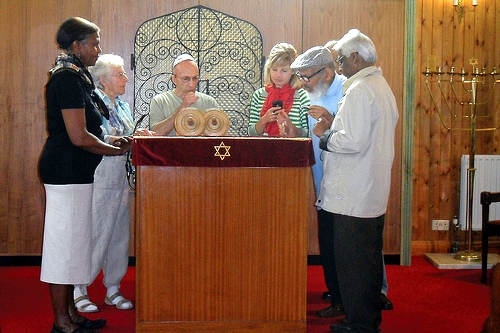
Ealing Liberal Synagogue (ELS) is a synagogue in West London, England, that embraces “those who were born into Jewish families as well as those from mixed and non-Jewish backgrounds who have embraced Judaism.” A type of Progressive Judaism in the UK, Liberal Judaism developed at the beginning of the 20th century. The movement, which is less conservative than UK Reform Judaism, considers itself the sister movement of North American Reform Judaism.
While Jewish holidays are kept and observing the Shabbat is considered essential, the traditions that have grown around keeping it are considered potentially stifling.
The study of traditional Jewish practices is recommended, but Reform Jews are free to follow whatever practices are perceived to “increase the sanctity of their relationship to God.” (Judaism 101)
Although Reform Judaism does not insist that adherents keep kosher, many Reform Jews avoid unclean foods such as pork, while others might keep a traditionally kosher home.
The Jewish status of children born of mixed marriages is established through “appropriate and timely public and formal acts of identification with the Jewish faith and people.”
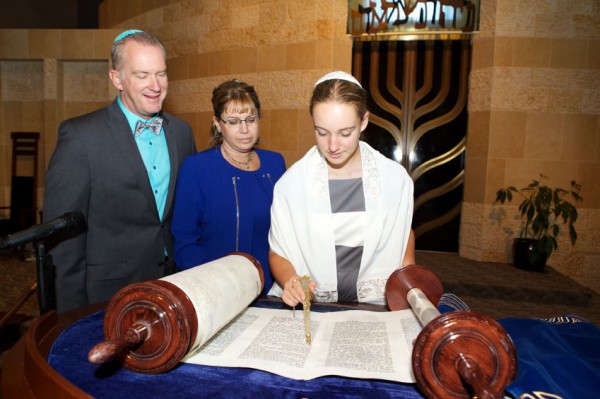
A Jewish girl celebrates her Bat Mitzvah, the ceremony in which Jewish children become obligated to observe the commandments. The first Bat Mitzvah in the United States was in 1922. The trailblazer was the daughter of Rabbi Mordecai M. Kaplan, of the Society for the Advancement of Judaism.
Reconstructionist Judaism
Reconstructionist Judaism is a 20th century movement that splintered from Conservative Judaism.
Though the movement is not large, it is influential.
It defines Judaism as a civilization and holds that every generation has subtly shaped and reshaped the traditions of the Jewish People.
It also maintains that Judaism has fundamentally changed over the centuries. In other words, it views Judaism as “the evolving religious civilization of the Jewish people.” (Judaism 101)
The movement is at heart Zionist, affirming the Holy Land as the site of Jewish origin and supporting the State of Israel.
However, many Reconstructionists reject the idea of God as a supernatural being and that He intervenes in our lives.
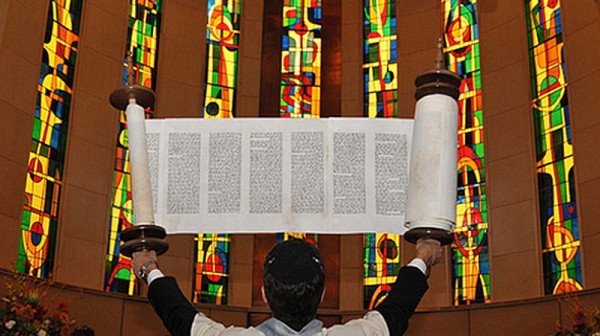
The Torah is lifted in Congregation Dorshei Emet (Seekers of Truth Synagogue), a Reconstructionist synagogue in Hampstead, Quebec, Canada.
According to Baltimore’s Reconstructionist Congregation Beit Tikvah, “Reconstructionist Jews thus understand Judaism to be the outcome of the religious experience of the Jewish people in their search for meaning and sacred living throughout history rather than revelation from a supernatural God. Put differently, Reconstructionists see Jewish tradition, culture, and religion as having grown ‘from the ground up’ instead of from the ‘(mountain-) top down.'”
Because Reconstructionists reject divine revelation, they also reject the doctrine that the Jews are God’s chosen people and the traditional Jewish hope for an heir of King David as the Messiah.
“Jews are not a divinely chosen race; … the Torah is a human document and not one supernaturally inspired and … modern Jews no longer look forward to the advent of a personal Messiah,” states Mordecai Kaplan, the father of Reconstructionism, in his “Sabbath Prayer Book.”
Reconstructionists give Jews “full status” whether their father or mother is Jewish and believe that Judaism should be inclusive of non-Jews and all sexual orientations.
They stress the importance of community and active participation, as well as the importance of integrating into society.
Even though some of God’s Chosen People have lost sight of the Promised Redeemer, and do not believe that God (if they believe in Him at all) is interested in their day-to-day affairs, God is still seeking the lost sheep of the House of Israel.
Although the Jewish People are not especially religious, with most valuing tradition and culture over religion, God has promised that they will come to Him in the last days.
“Afterward the Israelites will return and seek the LORD their God and David their king. They will come trembling to the LORD and to His blessings in the last days.” (Hosea 3:5)




